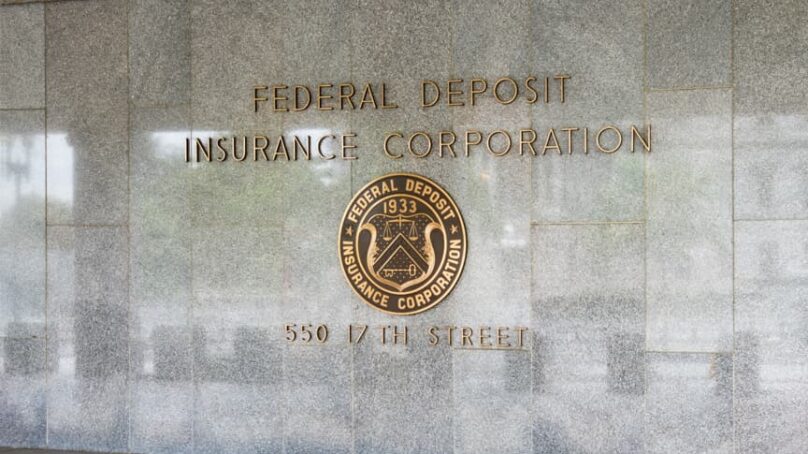
This article first appeared on CUCollaborate
As policymakers struggle with whether to increase deposit insurance at financial institutions—the FDIC outlined its own plan on Monday—credit union trade groups said they want banks and credit unions to be treated the same if changes are made.
“It is important for credit unions and banks—and our regulators—to be treated equally in order to provide the best quality financial services to consumers,” CUNA Deputy Chief Advocacy Officer for Federal Government Affairs Jason Stverak said Monday.
Brad Thaler, NAFCU’s Vice President of Legislative Affairs, said in March that while the trade group was not advocating for coverage limit increases, “any changes to FDIC coverage levels must include parity in coverage levels for the [National Credit Union Share Insurance Fund] while not changing the tried and tested structure, funding, and operations of the NCUSIF.”
‘Targeted coverage’ proposed
In its report, titled Options for Deposit Insurance Reform, the FDIC offered three possible changes and suggested that “targeted coverage”—where certain types of accounts are insured at higher amounts than others—might be the most effective update to the system.
The failure of Silicon Valley Bank drew attention to the number of accounts exceeding $250,000 at some banks. And the agency noted the impact social media had on Silicon Valley Bank, saying, “Social media posts advised depositors to withdraw funds from SVB, and uninsured depositors did so all at once.”
Backstory and context
Since the failure of SVB, policymakers have been struggling with whether to increase the insurance level beyond $250,000, which was set in Dodd-Frank.
The report found that from the end of 2009 through the end of 2022, uninsured deposits at FDIC institutions increased from $2.3 trillion to $7.7 trillion.
Some Democrats—notably Sen. Elizabeth Warren, D-Mass.—have called for an increase, a move conservative groups have said they would oppose.
In releasing the report, FDIC Chairman Martin Gruenberg said that the primary objectives of deposit insurance are to promote financial stability and protect depositors.
“Deposit insurance provides assurance to depositors that they will have access to their insured funds if a bank fails, thereby reducing the risk of bank runs,” he stated.
Inside the report
The FDIC said that targeted coverage, which allows for higher or unlimited deposit insurance limits for business payment accounts, has the greatest potential to meet many of the objectives of the deposit insurance system, while also solving many of the undesirable consequences of raising the limit more broadly.
The agency did concede, however, that identifying business payment accounts that would be subject to a higher limit could pose some challenges.
“Ultimately, the distinction between accounts with higher coverage and other account types should be based on criteria that are easily accessible and distinguishable between accounts, and that are clearly defined and disclosed in ways that depositors understand,” the report reads.
On the other hand, the FDIC noted, limited coverage would provide deposit insurance for all accounts at whatever level Congress chooses. Given its long history, this type of insurance is the most tested model, but it does not address the financial stability concerns associated with the events of March 2023.
A third option, according to the agency, would be to provide unlimited deposit insurance for all deposits. This, the report said, would allow increased bank risk-taking and would require a substantial increase in assessments paid by financial institutions.
































































